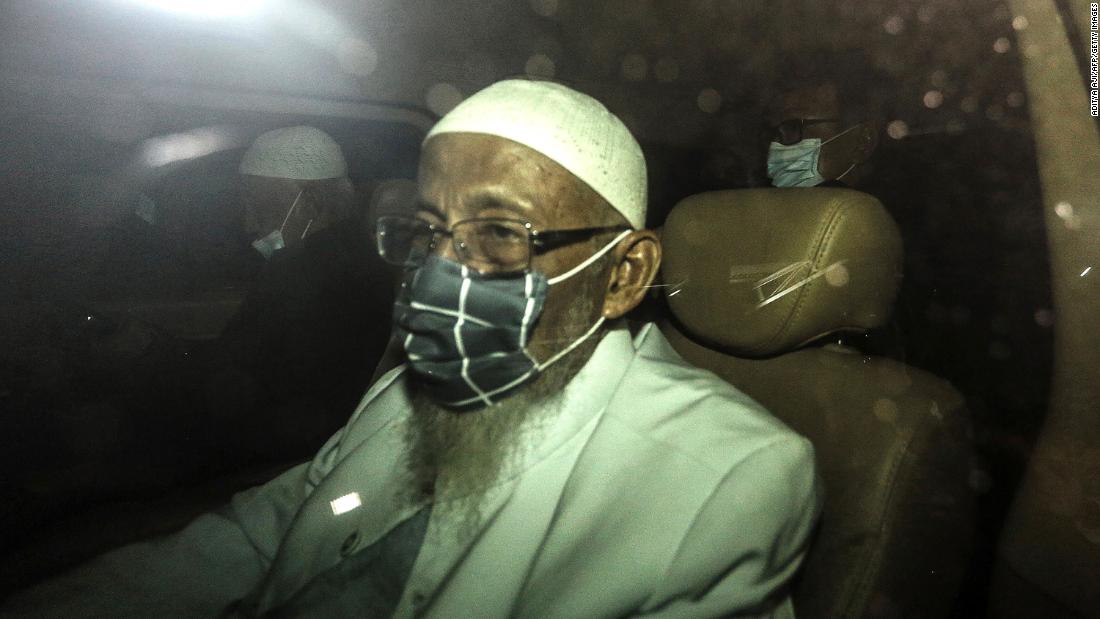Bashir was picked up by his family and was being driven to his home in central Java, said a spokeswoman for the penitentiary directorate-general of the Ministry of Law and Human Rights.
The photos showed him wearing a white tunic, white cap and face mask when he emerged from prison in Bogor, south of Jakarta.
“Abu Bakar Bashir was released from Gunung Sindur prison at 5:30 am,” spokeswoman Rika Aprianti told reporters, adding that he was healthy on his departure.
Bashir, 82, who is considered the spiritual leader of Jemaah Islamiah (JI), a jihadist network with ties to al-Qaeda, was arrested in 2011 for 15 years for his links to a militant training camp in Aceh province.
After receiving periodic reductions in his prison sentence, he served 10 years in prison.
Although Indonesian police and Western intelligence agencies say Bashir was linked to the Bali attacks that killed 202 people and a 2003 attack on the JW Marriott hotel in Jakarta, he was never condemned by them and denied those ties.
The Bali bombings killed 88 Australians, and the country’s foreign minister, Marise Payne, said this week that Indonesia must ensure that Bashir does not incite further violence.
Thiolina Marpaung, an Indonesian injured in the 2002 attacks, said she wanted authorities to continue to supervise Bashir.
“We don’t know what he did in prison,” she said by telephone. “The government still needs to exercise control over the terrorist actors in Indonesia who have already been out of prison.”
Bashir swore allegiance to Islamic State in 2014 while in prison.
Eddy Hartono, of the Indonesian anti-terrorism agency, said that Bashir will now undergo a de-radicalization program.
“We hope that Abu Bakar Bashir, after being free, can deliver peaceful and calming preaching,” he said in a statement.
In the wake of the Bali attacks and with the support of Australia and the United States, Indonesia has set up an elite anti-terrorist unit that has weakened the JI and resulted in the arrest or death of several suspected militants.
But other extremist groups have formed and conducted attacks in the world’s largest Muslim-majority country, and just last month the police arrested 23 militants, including Zulkarnaen.
Bashir’s son Abdul Rohim told Reuters ahead of the release that his father would return to the Islamic boarding school Al Mukmin, near Solo in Central Java province, which Bashir founded in the 1970s and whose past graduates are linked to militant networks and attacks.
“He completed his term. It is purely closed,” said Rohim, adding that he would conduct Islamic preaching.
Security analysts say that while Bashir does not have as much power over JI or other groups, he can still influence other militants.
“Bashir is an ideologue, his words will be followed and used as an example,” said analyst Stanislaus Riyanta.
